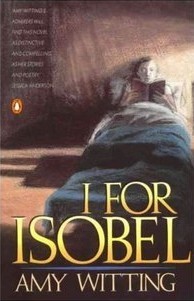What do you think?
Rate this book


158 pages, Paperback
First published May 1, 1989
If you were a part of speech, what part of speech would you be?’ …
‘I speak as a verb, a transitive verb. And Janet there is a conjunction, a co-ordinating conjunction.’ He turned to Vinnie. ‘And you, my pet, are an adjective, naturally … You adorn. You decorate’.
Isobel laughed too.
He looked at her kindly.
‘And what are you?’
She said in a small racked whisper, ‘I think I’m a preposition’.
‘Oh, do you govern?’
‘Only small common objects.’
Isobel said on a bubble of laughter, ‘My landlady’s a preposition. Against.”
‘You, Nick? You’re an adverb.’ He began to sing. ‘It ain’t what you do … It’s de way dat you do it …” He laughed loudly. ‘And Diana is a past participle.” (From pps. 82-83.)
Any rag will make a doll for the idiot in the attic.
Auden had a general in his head. (‘But they’ve severed all the wires, and I don’t know what the general desires.’)
Isobel had an idiot in the attic …
Idiot wants a mother.
Idiot can’t have one.
Life is very difficult.
(From pps. 104-105.)